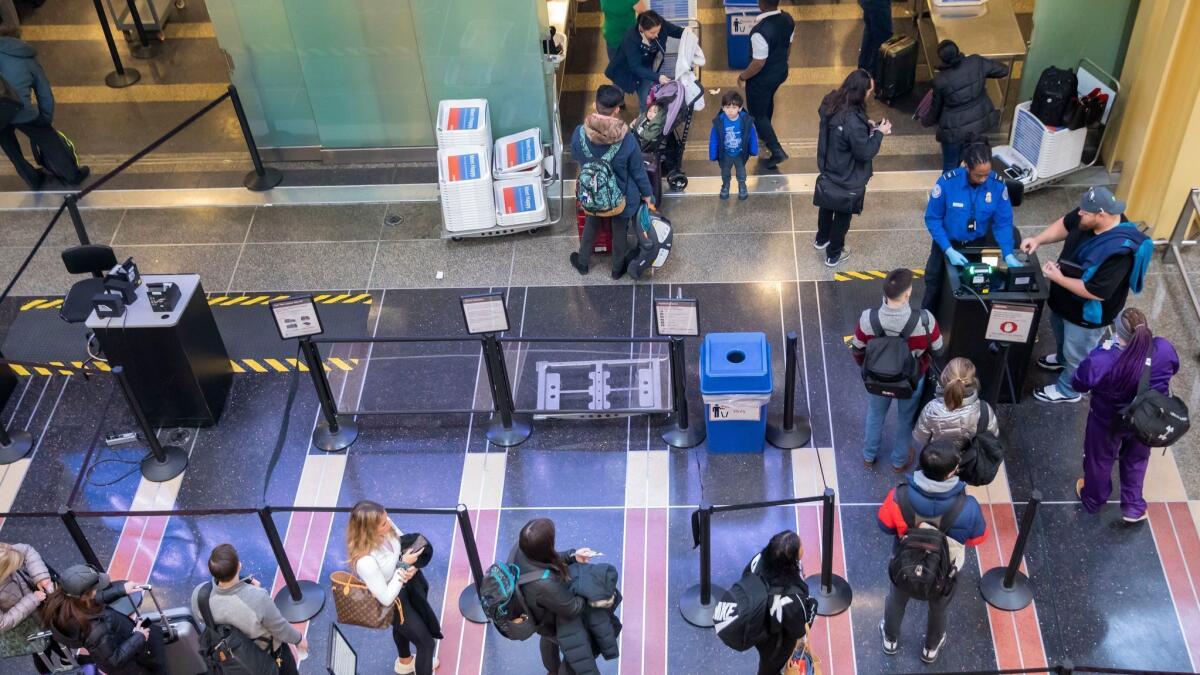Op-Ed: Shutdowns reinforce the widely held belief that ‘government is broken’

- Share via
When the federal government shuts down, many problematic repercussions follow.
Food and medicine don’t reach people in need, federal workers are caught in limbo without guaranteed pay for time lost, long-term damage is done to national parks, small businesses that cater to government employees experience significant losses and the government’s ability to respond to international disasters is severely limited.
But there is another, more insidious effect of shutdowns: They hurt Americans’ views of government, of the public good and even of the possibility of change. This damage persists well after government operations resume.
My colleagues and I study how Americans think about social issues. We do this by focusing on the cultural models that people use to make sense of issues — their implicit understandings, assumptions and patterns of reasoning.
Our growing disdain for government is part of a larger, overarching outlook in American culture: a palpable sense of fatalism.
We study these cultural models by talking with people. We ask open-ended questions about an issue: how it works, what should be done and who is responsible. We try to get people to explain, to narrate, to provide examples and to reason. All of this gives us a window into how they think.
We’ve done this for almost 20 years, examining more than 30 social issues with almost 400,000 research participants. We’ve looked at issues that include addiction, aging, homelessness, healthcare, mental health and immigration.
When you have these conversations across diverse groups, you see common reasoning on a given topic. One particular line is strengthening across all groups: The idea that government is inefficient at best, and downright corrupt at worst.
Over and over, we find that most Americans view government as both monolithic and inept, even broken. They see it as the government rather than our government. And they rarely recognize the many ways that it is woven into their daily lives.
To a majority of Americans, government is the problem, rather than an essential tool for solving problems.
This may seem unsurprising at this point. But the disturbing thing is that this view of government has become part of our collective cultural narrative, to the point where we simply take it for granted.
Americans apply this assumption to their thinking about children’s education, poverty alleviation, climate change, gun violence and criminal justice reform.
In short, “government is broken” is more than a refrain. It’s a widely held belief.
Our growing disdain for government is part of a larger, overarching outlook in American culture: a palpable sense of fatalism.
Many Americans display an implicit belief that the issues we face are too big, too deep and too numerous to be addressed, and that the body responsible for addressing them is too dysfunctional and ineffectual.
With increasing frequency and on a growing number of issues, Americans are simply throwing up their hands. As a result, they are also unwilling to spend any resource — psychological or financial — to move toward solutions.
In this context, a government shutdown serves as powerful proof of the views many Americans already hold and further evidence that change is impossible.
Enter the Fray: First takes on the news of the minute from L.A. Times Opinion »
When this fatalistic outlook is underscored by such a powerful example, it becomes a serious hindrance to everyone working toward meaningful change. If our government can’t run, what hope do we have of addressing any of the issues we face?
Although these patterns of thinking certainly didn’t start with the current shutdown, or the previous one, or even the one before that, this view deepens with each closure. To distrust and deride government has become part of what it means to be an American.
The question at this point is not how Americans think about government, but rather how to change the beliefs on which their understandings are predicated.
What will it take to embed a different narrative in the minds of Americans — one that recognizes the potential of government to support the well-being of its citizens? That’s a story worth telling.
Nat Kendall-Taylor is chief executive officer of the Frameworks Institute, a nonprofit organization that helps other nonprofits expand their use of social science research.
Follow the Opinion section on Twitter @latimesopinion or Facebook
More to Read
A cure for the common opinion
Get thought-provoking perspectives with our weekly newsletter.
You may occasionally receive promotional content from the Los Angeles Times.









